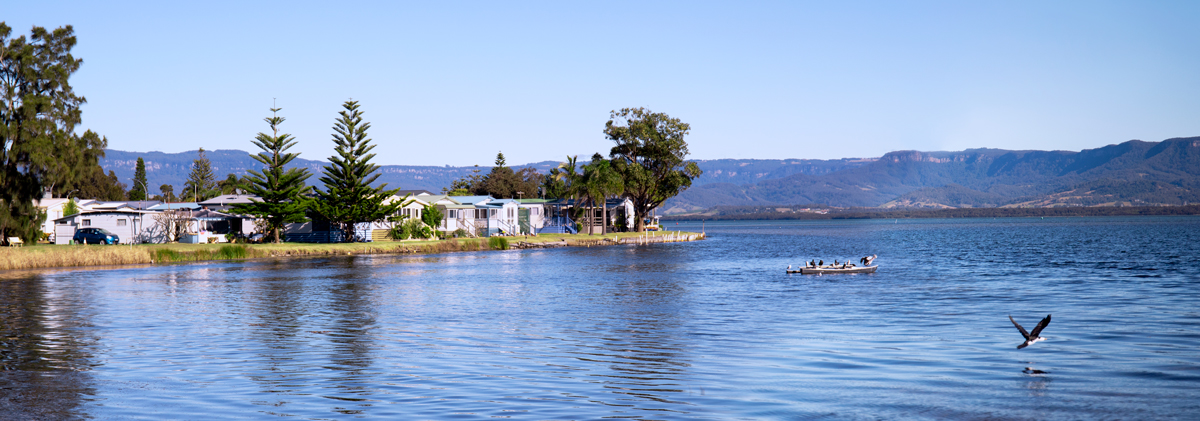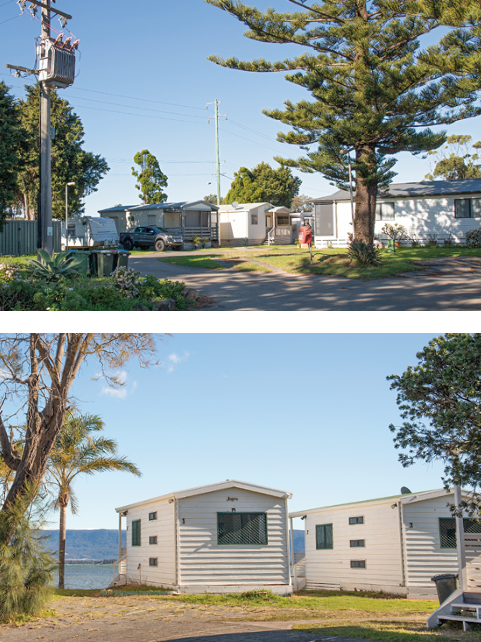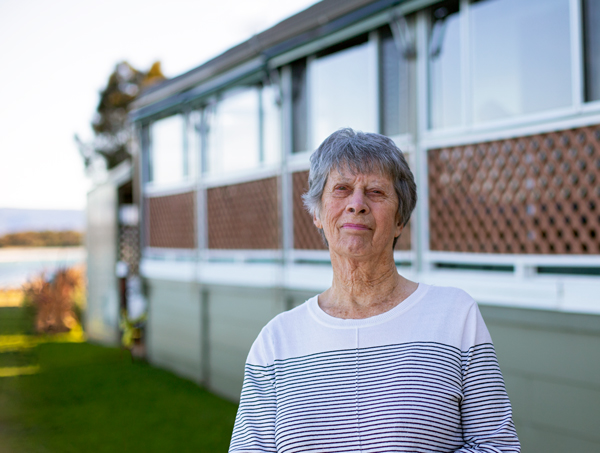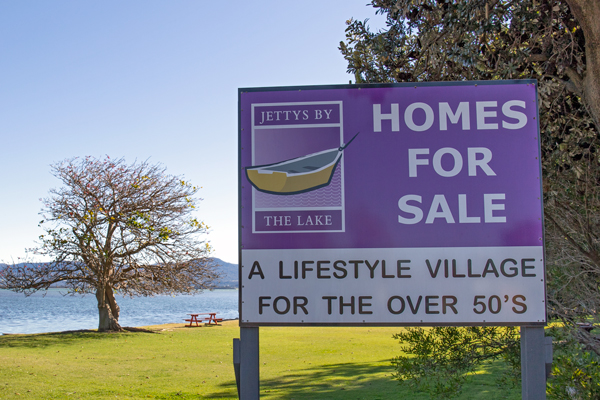Local Government complications
24/08/2021
Roles, responsibilities, compliance

It was difficult to know where to start this article because the list of issues surrounding the interaction of local councils and local government regulations with land lease community operators and home owners is long. To bring some of these issues into focus we have decided to highlight the plight of home owners in four land lease communities in the Illawarra. All of these communities are within the Wollongong local government area.
Approval to operate
The Local Government Act 1993 (LG Act) provides the legal framework for the system of local government in NSW. Amongst other things the Act sets out the responsibilities and powers of councils and councillors. Section 68 of the LG Act prohibits certain activities from being carried out without the prior approval of the council and those activities include operating a caravan park and operating a manufactured home estate. Although the terminology is outdated, section 68 essentially requires all land lease community operators to hold an approval to operate.
The Local Government (Manufactured Home Estates, Caravan Parks, Camping Grounds and Moveable Dwellings) Regulation 2005 (the Regulation) is made under the LG Act and it provides that the council must not grant an approval to operate a caravan park or manufactured home estate unless it is satisfied that it will be designed, constructed, maintained and operated in accordance with the relevant requirements of the Regulation. Compliance with the Regulation is the issue impacting home owners in the four communities in the Illawarra.
Figtree Gardens

Figtree Gardens Caravan Park sits in the Wollongong suburb of Figtree. It has 200 residential sites accommodating 380 residents. Figtree Gardens operated without an approval for over seven years before Wollongong City Council (WCC) started working with the operator, requiring action to address the issues of safety and non-compliance. The problem is that over this seven year period the compliance problems had become extensive.
WCC inspected the community and produced a report setting out a list of issues to be addressed before the operator could be issued with a new approval to operate. These issues are not restricted to the operator – according to council, almost every site at Figtree Gardens contains at least one structure that is in some way non-compliant. This has raised a number of concerns for affected home owners, many of whom bought their homes as they currently stand, on-site.
There has been debate about WCC’s interpretation of some separation distance requirements and their approach to the compliance problems at Figtree. Many home owners feel they are now being asked to pay to fix problems that arose because WCC and the operator failed to meet their obligations over a number of years. Not only do home owners believe this is unfair, the costs associated with making a site compliant could be significant and some home owners simply do not have the money.
Currently there appears to be a stalemate at Figtree. WCC issued a restricted conditional approval to operate in December 2018 subject to the completion of a staged program of works. In order to obtain an unconditional approval the compliance issues need to be addressed. The operator can and should do what council is requiring of them, but making all of the sites compliant is not going to be easy, and at present it appears there is no clear pathway to ensure it happens.
Oasis

South of Figtree, Oasis Caravan Park sits on the eastern shore of Lake Illawarra. It has around 43 sites and 55 residents. Oasis does not have a current approval to operate, and has not had one since 31 August 2006 when the last one expired. Like Figtree Gardens, there are a number of compliance issues that WCC have advised must be addressed in order for a new approval to be issued. However, unlike Figtree, the operator of Oasis appears not to want a new approval. Rather than dealing with compliance issues, the operator has issued all home owners with 90 day termination notices under section 127 of the Residential (Land Lease) Communities Act 2013 (RLLC Act) on the basis the sites are not lawfully useable for the purposes of a residential site. This action has placed the home owners in a very precarious position and highlighted a major flaw in land lease community legislation.
The Act is supposed to provide enhanced protection for home owners against termination because of the significant investment home owners make to live in a community. Sections 124 and 125 enable an operator to issue a home owner with a termination notice when a community is going to close, or when a residential site is to be used for a different purpose. Both circumstances require the operator to take certain steps before issuing a termination notice, for example, obtaining development consent if it is required, or being authorised by the Tribunal. The termination notice must give a home owner at least 12 months to vacate the site, and the operator is required to pay compensation to the home owner prior to them vacating the community.
The operator of Oasis Caravan Park has indicated the community will be closing but, rather than follow the process set out in section 124 of the Act, it is using section 127 which affords home owners less time to vacate and could leave some without a right to compensation.
Home owners at Oasis are covered by the RLLC Act because it applies whether or not the community has an approval to operate under the Local Government Act. The question is whether the lack of a current approval to operate makes the sites unlawful. If it does, the home owners’ site agreements can be terminated.
When the draft Residential (Land Lease) Communities Bill was released for consultation in 2013 the Park and Village Service (PAVS) raised concerns that certain provisions weakened security of tenure for home owners. PAVS were shouted down and accused of misleading residents and wilfully misinterpreting the Act. Unfortunately for a number of home owners, including those at Oasis, the Act has weakened security of tenure for home owners and undermined the rights of some to seek compensation when their site agreement is terminated.
If home owners at Oasis have their site agreements terminated in these circumstances, the Act will have failed them. It will be a double and devastating blow to those who do not have a right to compensation. The majority of these home owners are pensioners with no assets other than their home in the community. This course of action should simply not be available to a land lease community operator.
Gateway Lifestyle Oaklands

Further south, also on the shore of Lake Illawarra is a community known locally as Oaklands. It has 245 residential sites and is home to around 370 residents. The community has been operating as a land lease community since the beginning of the 1990s. On 31 August 2019 the approval to operate expired and when the operator applied to WCC for a renewal it was declined because of issues of non-compliance with the Regulation.
Jean and Ralph bought their home at Oaklands in 1993. They purchased the home from the operator who installed it on the site and it has not been moved or added to since that time. In a report authored by WCC in April 2020 Jean and Ralph discovered their home is too close to an access road and is therefore not compliant with the Regulation. The home cannot be moved and they, like many other home owners at Oaklands, don’t understand how something that has been in place since 1993 only became an issue in 2020.
Jean says, “We’d like to work with Council and come to an agreement. We’re willing to make reasonable changes, but some of the demands they are making are impossible to comply with.”
Jettys By The Lake

Between Oaklands and Oasis is Jettys By the Lake. It has approximately 180 residential sites occupied by 284 residents. Home owners at Jettys are facing a different issue – they were recently advised that within five years they will need to raise their homes to three metres above sea level because of the predicted flood level for 2050.
This requirement came out of an agreement made in a conciliation conference arranged by the Land and Environment Court between the operator and WCC on 27 November 2020. The operator has said they felt they had little choice but to accept the condition as it became clear court proceedings may jeopardise the rights of existing residents to remain in the community.
Home owners are now questioning how the condition can be met and, if homes can be raised, who will pay? In the meantime they are concerned that anyone wanting to leave will be unable to sell their home.
The situations faced by home owners in these communities highlight the complexities of land lease community living and the disconnection in the legal relationships between local councils, operators and home owners.
Many of the issues related to land lease communities are historic and finding appropriate solutions will not be easy. What is required is a whole of government approach. The regulatory regime must be modern and fit for purpose. Operators and home owners should not be overburdened by compliance requirements that cannot realistically be met. Land lease communities are an important component of the NSW housing structure. Long-established communities, like the ones in the Illawarra, should be enabled to remain safe and viable so that operators and home owners have certainty about the future.
This article was published in Outasite magazine issue 7. Outasite is published annually. Outasite Lite email newsletter, is sent several times a year – subscribe here. All past issues are available in the archive.
